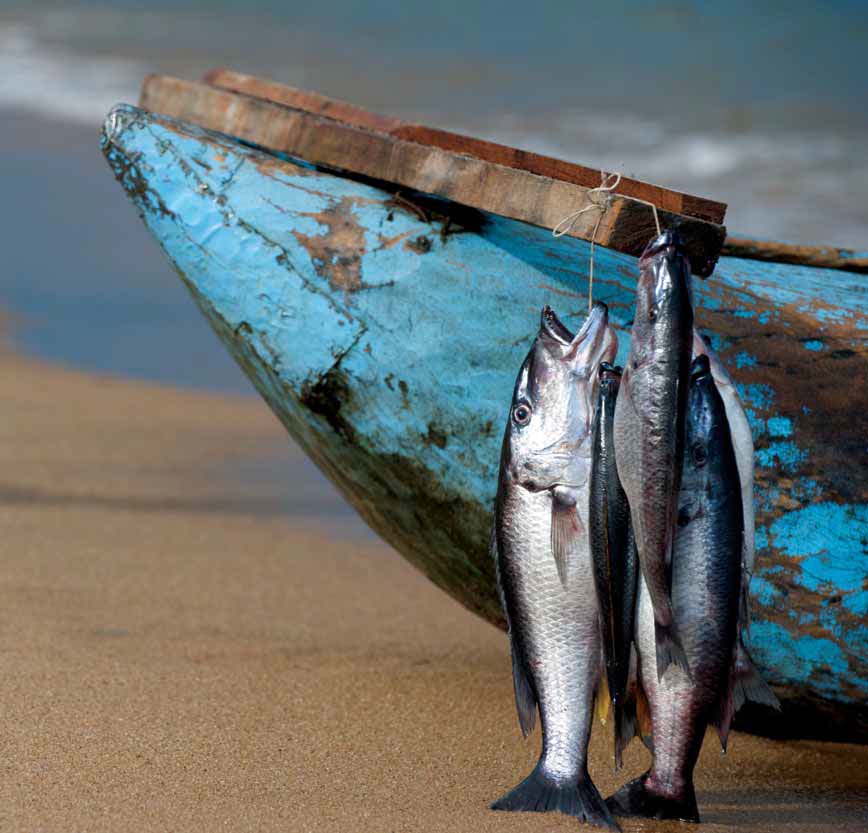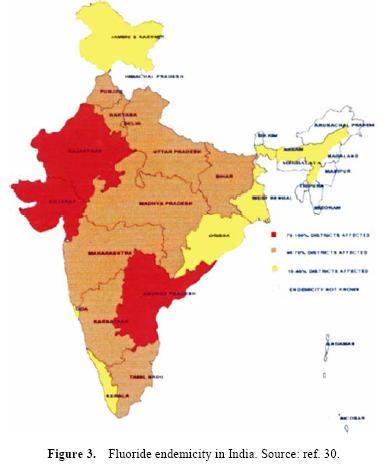/topics/water-management
Water Management
Blue harvest – Inland fisheries as an ecosystem service – A report by UNEP
Posted on 24 Aug, 2011 11:34 AM This report by United Nations Environment Programme (UNEP) reviews the importance of inland fisheries as an ecosystem service, the pressures upon them, and management approaches to sustain them and thus helps inform future approaches to conservation and management of freshwater ecosystems.
This report by United Nations Environment Programme (UNEP) reviews the importance of inland fisheries as an ecosystem service, the pressures upon them, and management approaches to sustain them and thus helps inform future approaches to conservation and management of freshwater ecosystems.
There is an urgent need for major investment in policy and management approaches that address the direct and indirect drivers of aquatic ecosystem degradation and loss of inland fisheries taking into account their role in sustainable development and human well being. The UNEP Ecosystem Management Programme (UNEP-EMP) provides an effective framework for pursuing this challenge.
Sanitation as a business - A new spin on the challenge of sanitation operation and maintenance - A paper by Water for People
Posted on 24 Aug, 2011 11:34 AMThis paper published by the Water for People describes Sanitation as a Business, an innovative approach to operation and maintainance challenges in household sanitation improvements, by describing the case of the implementation of the approach in the context of Malawi, by Water for People. The paper argues that programs that build latrines have consistently struggled to have impact or reach scale, and have often distorted the market environment in ways that have undermined future sanitation development.
The paper emphasises the relevance of this approach in the context of developing countries such as India by stating that the world would not be able to achieve even half of the Millennium Development Goals for sanitation at current rates of installation and consequently is projected to miss the sanitation MDG by more than 700 million people. Among the twenty two percent of those without access to improved sanitation, the greatest challenge remains in Asia and India in particular.
Rajiv Gandhi National Drinking Water Mission – Report of an evaluation study by the Planning Commission (2010)
Posted on 23 Aug, 2011 10:17 PMThis evaluation study report by the Programme Evaluation Organisation, Planning Commission attempts to document the major achievements in rural water services under Rajiv Gandhi National Drinking Water Mission. It does so by assessing the extent of coverage and access to improved services in the rural areas.
Water.org invites applications for the post of Program Officer - Apply by September 7th, 2011
Posted on 23 Aug, 2011 05:57 PM
Water.org is a dynamic, rapidly growing international organization addressing the global water supply crisis. It is committed to providing clean drinking water and improved sanitation to communities in developing countries. Working in partnership with donors, beneficiaries and other stakeholders, Water have helped people around the world develop accessible, sustainable, community-level water and sanitation (watsan) services. Water.org currently operates in several countries, including Ethiopia and Kenya, and is considering other countries for expansion.
Background:
Water.org has pioneered its WaterCredit initiative over the last several years, which enables clients of microfinance institutions (MFIs) to improve the access, quantity, and quality of their families' water and sanitation services.
Challenges of sustainable water quality management in rural India - Current Science
Posted on 23 Aug, 2011 04:51 PM The article informs that access to safe drinking water remains an urgent necessity, as 30% of urban and 90% of rural households still depend completely on untreated surface or groundwater.
The article informs that access to safe drinking water remains an urgent necessity, as 30% of urban and 90% of rural households still depend completely on untreated surface or groundwater.
While access to drinking water in India has increased over the past decade, the tremendous adverse impact of unsafe water on health continues. It is estimated that about 21% of communicable diseases in India are water related.
Although some degree of intervention in terms of chlorination and monitoring of water quality exists in major cities and towns, rural India, which constitutes the bulk (70%) of the population, is usually deprived of such interventions. The population in rural India is mainly dependent on the groundwater as a source of drinking water. As a quality concern the groundwater is often found to be contaminated with fluoride, arsenic, iron and salts. In recent years, fluorosis has emerged as major public health issue in rural India.
Sanitation - The hygienic means of promoting health - Indian Journal of Public Health
Posted on 23 Aug, 2011 11:10 AMThis article published in the Indian Journal of Public Health highlights the importance of sanitation as hygienic means of dealing with health of populations and presents the history and the definition of sanitation and highlights t
Hydrology of the Upper Ganga river – A report by the International Water Management Institute
Posted on 21 Aug, 2011 10:43 PMTo provide the background hydrological information for the assessment of environmental flow requirements at four selected ‘Environmental Flow’ sites, a hydrological model was set up to simulate the catchment in the present state (with water regulation infrastructure) and to generate the natural flows (without water regulation infrastructure).
Integrated Low Cost Sanitation Scheme - Revised guidelines by the Ministry of Housing and Urban Poverty Alleviation (2008)
Posted on 12 Aug, 2011 04:29 PMThe objective of the scheme is to convert or construct low cost sanitation units through sanitary two pit pour flush latrines with superstructures and appropriate variations to suit local conditions (area specific latrines) and construct new latrines where economically weaker sections household have no latrines and follow the in-human practice of defecating in the open in urban areas. This would improve overall sanitation in the towns.
The challenges of ecological sanitation in coastal south India - A case study of Kovalam town - South Chennai (Tamil Nadu) - A presentation
Posted on 11 Aug, 2011 05:48 PMThis presentation by Sekhar Raghavan, Director, Rain Centre, Chennai, India highlights the experiences and the challenges faced by Rain Centre in introducing ecological sanitation in the coastal town of Kovalam near Chennai, Tamil Nadu, India along with Coastal and Rural development Trust (CRDT), a small non profit centre based in Kovalam .
The coastal town of Kovalam was selected as a case because of its peculiar situation with its location in a fast developing peri-urban area in proximity to Chennai city characterised by good groundwater situation, adequate land and housing facilities, but with a glaring and urgent need and demand for toilets.







